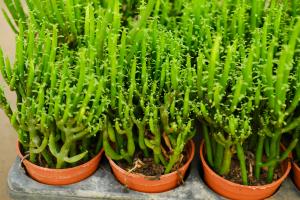Introduction
Alkaline water is water that has a pH level greater than 7.0. It has various applications, and one of them is watering plants. The use of alkaline water on plants is becoming increasingly popular, but the question remains whether it is beneficial or detrimental. This article explores what alkaline water does to plants.
What is Alkaline Water?
Alkaline water is simply water that has a higher pH level than neutral water, which has a pH of 7.0. The pH scale ranges from 0 to 14, with lower pH levels indicating acidity and higher pH levels indicating alkalinity. Alkaline water typically has a pH of 8.0 or higher, and it is produced in several ways, including adding certain minerals or using a water ionizer.
The Effects of Alkaline Water on Plants
The effects of alkaline water on plants are still being studied, but there are a few generalizations that can be made. First, most plants prefer soil with a slightly acidic pH level of around 6.0 to 7.0. Using alkaline water can raise the pH level of the soil, which can affect the plant's ability to absorb nutrients. Second, alkaline water can also affect the pH level of the plant itself, which can lead to nutrient deficiencies and other problems.
Benefits of Alkaline Water on Plants
While there are potential drawbacks to using alkaline water on plants, there are also some benefits. For example, alkaline water can help reduce acidity in soil that has become too acidic due to overuse of fertilizer or other factors. It can also help combat the effects of acid rain, which can damage plants and their root systems. Additionally, alkaline water can help plants absorb certain nutrients better, such as nitrogen and phosphorus.
When and How to Use Alkaline Water on Plants
If you decide to use alkaline water on your plants, it is important to do so correctly. First, test the pH level of the soil and the water before applying alkaline water. If the pH levels are already high, using alkaline water may not be necessary or even harmful. Second, apply alkaline water in moderation and gradually, as sudden changes in pH level can be stressful for plants. Finally, monitor the plants closely for any signs of stress or nutrient deficiencies that may indicate a problem with alkaline water use.
Conclusion
Overall, the use of alkaline water on plants can have both benefits and drawbacks. It is important to understand the potential effects of alkaline water on plants and use it correctly and in moderation. For most plants, a slightly acidic pH level is ideal, so it is important to carefully monitor the pH levels of soil and water when considering the use of alkaline water. While alkaline water may not be suitable for all plants, it can have some positive effects when used correctly.

 how many times do yo...
how many times do yo... how many planted tre...
how many planted tre... how many pine trees ...
how many pine trees ... how many pecan trees...
how many pecan trees... how many plants comp...
how many plants comp... how many plants can ...
how many plants can ... how many plants and ...
how many plants and ... how many pepper plan...
how many pepper plan...































